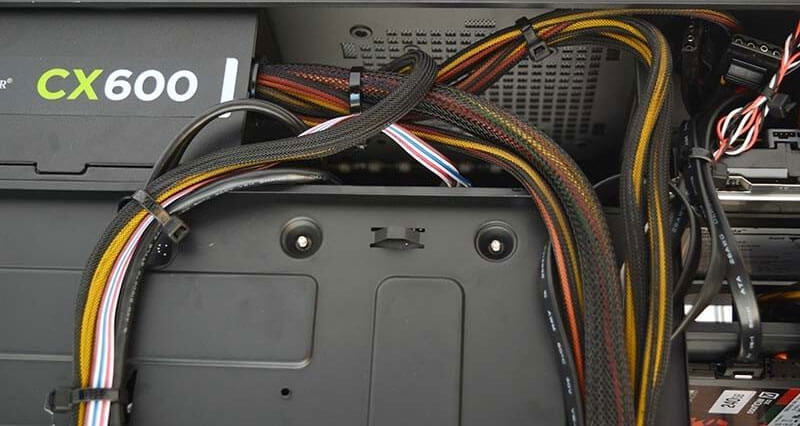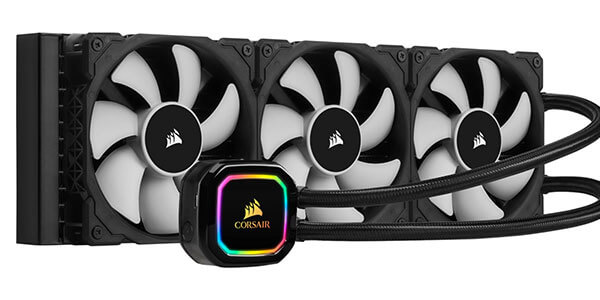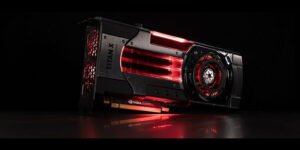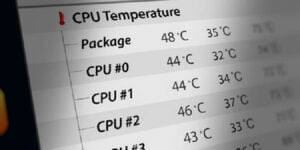Computer overheating can lead to frustrating issues such as abrupt shutdowns, system freezes, or even the notorious blue screen crashes. If your PC feels excessively hot to the touch or if you’ve noticed your fans running loudly and working overtime, these are signs that your computer might be grappling with overheating problems.
These issues tend to arise when your computer is pushed to its limits, especially during resource-intensive tasks like gaming or video editing.
In this article, we’ll explore the common signs of an overheating computer and provide you with effective strategies to prevent it from happening, ensuring your PC remains cool and performs optimally.
First: Look out for your PC’s temperature
Every hardware component has a specific temperature range. Anything above 70 degrees Celsius is dangerous. To prevent computer overheating, you must consider these temperature thresholds.
Don’t forget to keep a close watch on your GPU temperature, as it’s a major contributor to overheating. During gaming sessions, your GPU should ideally run between 60-80 degrees Celsius.
If it crosses 80 degrees, it’s a sign of GPU overheating. Even when idle, the GPU temperature should remain within the range of 45-63 degrees Celsius. Employ the best temperature monitoring tools to check GPU temperature effectively and learn how to keep your computer from overheating.
11 Easy Ways To Stop Your Computer From Overheating [PC & Laptop]
To effectively cool down your computer, the first step is to pinpoint the root causes of overheating. Once you’ve identified the culprits behind the excessive heat, you can take the necessary steps, whether it involves a thorough physical cleaning of your PC, enhancing airflow, or simply closing a few browser tabs.
1. Improve Air Flow
Ensure your computer remains cool by maintaining clear airflow through its air vents. Placing your laptop on a soft surface like a bed or couch can obstruct these vents. Instead, opt for a table or lap desk for optimal ventilation.
The same principle applies to desktop computers; avoid confining them in cabinets or carpets and set them on hard, spacious surfaces to promote efficient airflow and prevent overheating.
Related: Why is my CPU Overheating? How do I keep my CPU Cool?
2. Check that the Fans are Working
Your computer’s internal components generate heat, especially during extended usage. This is manageable if your fans are functioning correctly, effectively regulating temperatures.
However, if your computer fan is consistently loud, consider these easy ways to check its performance:
- Listen for the fans whirring into action when you turn on your PC.
- Place your hand near the computer’s fan grille and sense any vibrations.
- Utilize a flashlight to confirm fan movement by observing it through the fan grille.
Should your fans persistently produce noise, it might be time to explore hardware upgrades such as heat sinks or external PC coolers to better manage and dissipate excess heat.
3. Clean Your PC Regularly
To maintain your PC’s optimal performance and prevent overheating issues, regular cleaning is essential. Over time, dust, debris, pet hair, and other particles can accumulate inside your computer, clogging up vents and fans, which may lead to loud and inefficient fan operation.
Here’s what you’ll need for the cleaning process:
- A can of compressed air
- A microfiber cloth
- 99% isopropyl alcohol
Begin by opening your computer and carefully cleaning each fan, including the CPU fan, external fans, and the power supply fan. Use the compressed air to dislodge and remove dust and debris, and then clean the fan blades with a cloth soaked in isopropyl alcohol.
4. Close Resource Intensive Program
To prevent excessive heat generation and overloading of your computer’s CPU, it’s advisable to avoid using programs that consume a significant amount of CPU power. When the CPU is pushed to its limits, it generates more heat, leading to high temperatures. Prolonged overloading can even result in 100% disk usage as the system resorts to creating virtual memory on your hard drive to manage the increased workload.
To alleviate the strain on your CPU, you can take the following steps:
- Open Task Manager by pressing Ctrl + Shift + Esc.
- In the Task Manager window, navigate to the list of applications and examine the CPU column.
- Identify any applications that are utilizing a substantial share of CPU resources.
- Right-click on the problematic applications and choose “End task” to terminate them, reducing the CPU load and, subsequently, the heat generated.
5. Change PC Fan Speed
Adjusting your PC fan speed is essential for preventing overheating issues. Default fan speed settings can often be too slow to effectively cool down your computer.
Additionally, GPUs can generate heat, and their fan speed may not always activate as needed. To gain control over your PC’s fan speed and improve cooling, consider using fan controller software like SpeedFan:
- Install a program like SpeedFan, one of the best PC fan controller software options available.
- Manually adjust fan speeds by clicking on the up arrow to increase the fan speed percentage. Keeping fans at around 50% speed can help maintain a cooler PC temperature and prevent overheating.
- Regularly monitor your PC’s temperature with the software to ensure it stays within a safe CPU temperature range, preventing overheating issues.
6. Reapply Thermal Paste
Reapplying thermal paste is a useful step to improve your computer’s cooling system. Thermal paste, a conductive material, is commonly applied to components like the CPU and GPU to enhance heat dissipation and maintain safe operating temperatures. Over time, thermal paste can degrade and become less effective.
This process ensures that heat transfer remains efficient, preventing critical temperature levels within your machine.
7. Improve Cable Management
Efficient cable management is essential to stop computer from overheating. The cables connecting your hardware components can occupy a significant amount of space within your PC.
When these cables are disorganized and tangled, they obstruct airflow, which can lead to overheating issues. To address this problem, it’s important to organize, secure, and neatly arrange your cables to create more open space inside your PC.

This process involves turning off your computer to ensure safety and then utilizing zip ties or cable organizers to secure and configure your cables, maintaining a tidy and organized interior.
While managing component cables may seem a bit challenging and may require unplugging and reconnecting some components, it will result in a more streamlined and efficient system. Proper cable management not only helps prevent overheating but also makes future component replacement easier and enhances overall airflow.
8. Install More Case Fan
Adding more case fans helps with PC overheating. It may cost around $10 to $20. Case fans circulate air in the computer, reducing the risk of overheating and protecting your components.

Consider installing at least two case fans for improved airflow – one at the front and one at the back. Laptops can’t have case fans, so a cooling pad is a good choice for them.
9. Stop Overclocking
Avoiding overclocking your CPU is a wise approach to prevent excessive heat generation in your computer. While overclocking can boost performance, it often generates more heat than your system can effectively dissipate. To maintain lower CPU temperatures and prevent overheating:
- Stick with default clock speeds or even consider underclocking your system slightly.
- Apply the same principle to other components like your GPU and RAM, refraining from overclocking to maintain optimal temperature levels and reduce the risk of overheating.
10. Upgrade the CPU Cooler

The CPU is a crucial and sensitive part of your computer, and it’s prone to overheating. Upgrading your CPU cooler can help maintain lower temperatures in your entire system by improving airflow. However, it’s important to note that replacing the CPU cooler is a step to consider after trying other cost-effective cooling solutions.
Various companies offer CPU cooling solutions, with options like air and liquid coolers. Large CPU air coolers, especially those with big heat sinks, can effectively dissipate heat due to their ample surface area.
Before opting for a larger cooler, ensure it fits comfortably within your computer case. Some recommended CPU cooler brands include Corsair Hydro Series, DeepCool, MasterAir Maker 8, and MSI CPU Core FrozR L Cooler.
11. Replace the Power Supply

Another computer cooling solution through which you can prevent computer overeating is to upgrade the power supply unit. Because the power supply has a larger fan built into it. When you hold your hand behind the computer, you can easily feel constant airflow, it is coming from that fan.
If you don’t have a case fan, the power supply fan is the only way that the hot air created inside your computer can be removed. Your computer can heat up quickly if this fan isn’t working properly.
Unfortunately, you can’t just replace the power supply fan. If this fan is no longer working, you’ll need to replace the entire power supply to avoid computer overheating.
12. Install a Water Cooling Kit
Water cooling is a relatively expensive method, so it’s advisable to consider it after trying the previously mentioned cost-effective solutions. Water cooling kits are most suitable for high-end computers, where overheating becomes a significant issue that conventional fans can’t efficiently address.

In such cases, a water cooling kit can be a valuable solution for combating computer overheating. Water cooling systems are highly effective at transferring heat, resulting in a significant reduction in CPU temperature.
These systems do not demand excessive space around the CPU. Liquid coolers operate by transferring heat using specific liquids, which are then cooled using a substantial radiator either mounted inside or outside your computer case. Liquid coolers are user-friendly and relatively easy to install, making them accessible even to individuals who haven’t previously upgraded a computer.
13. Scan for Viruses and Malware
Viruses and malware can run high-impact processes without your knowledge, causing your PC to overheat rapidly. Utilize a malware detection and removal tool to identify and eliminate malicious software from your computer.
14. Update All Software
Keeping your PC current with the latest operating system, drivers, and other software provides various performance and security advantages, and it can help prevent overheating. Fresh updates also address bugs and inefficiencies, promoting faster and more efficient computer operations.
Opt for a specialized driver updater tool to achieve optimal PC performance by automatically scanning for and resolving corrupted or outdated software, all without you needing to intervene.
15. Install a Phase Change Unit

Phase change units are the most useful cooling technologies. A phase change unit can be thought of as a refrigerator for your CPU. It utilizes many of the same technologies to cool or even freeze a CPU.
Phase change units like the one pictured here range in price from $1,000 to $2,000. Similar enterprise-level PC cooling products can be $10,000 or more!






